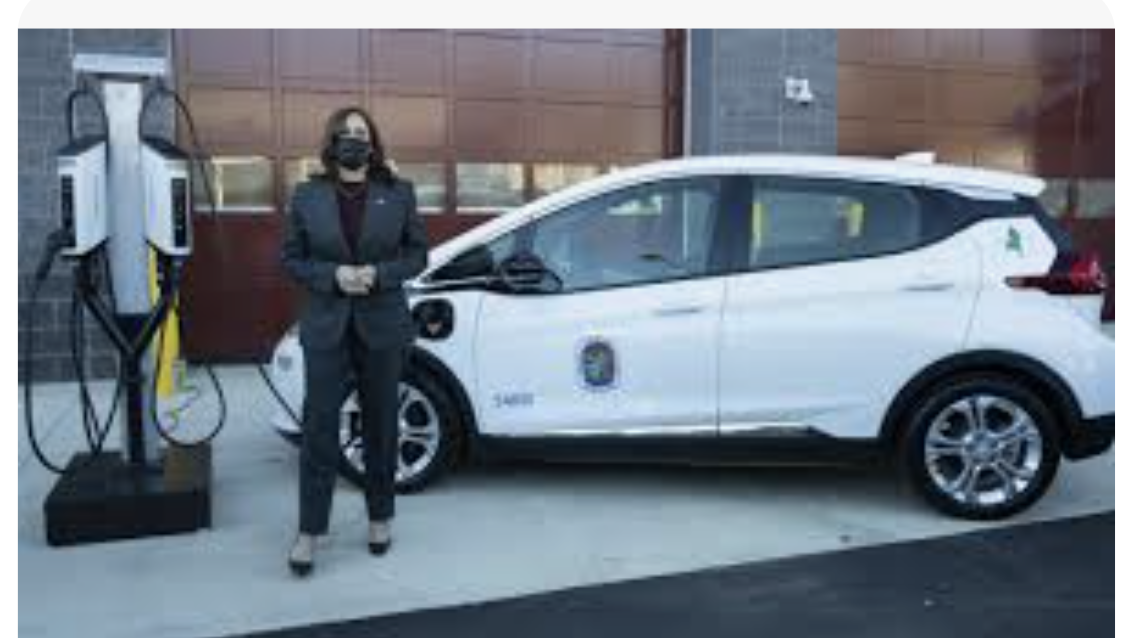Real estate activity has slowed to almost nothing as the August doldrum descends, so why not talk of politics, which hasn’t paused since 2015? EV cars, for instance.
After several paragraphs detailing some of the (many) defects of battery cars, Canadian David Solway gets tp the heart of the matter
The obvious question has to do with the reason governments have invested so heavily and at such expense in forcing so radical and risky a policy as the complete transformation of the auto sector and the introduction of EVs known to be unreliable, dangerous, and inefficient. After all, the automotive industry is a key element in national prosperity. According to the Alliance for Automotive Innovation, the standard vehicle manufacturing automotive ecosystem “drives $1 trillion into the U.S. economy each year—nearly 5 percent of GDP— and creates 9.6 million jobs coast to coast and $105 billion in exports. Every direct job in vehicle manufacturing supports 10.5 additional American jobs. More than $220 billion in federal and state revenue is generated annually by the manufacturing, sale, and maintenance of automobiles in the U.S.”
Why tinker with the golden goose, the cash cow, or any other theriomorphic image one might wish to use? Why sell one’s birthright for a mess of pottage, which is what the EV industry actually is? Todd Lewis, a commenter on my previous article on PJ Media, put it succinctly. “It is a way for governments to advance totalitarian control of the populace, wreck the economy, and disempower the middle class.” His thesis is backed up in Joel Kotkin’s masterpiece "The Coming of Neo-Feudalism." Kotkin chronicles how the once-numerous and thriving middle class is relentlessly being phased out of existence by a power elite intent on re-medievalizing society while advancing their own social, political, and economic supremacy. Like the serf who lacked freedom of movement and was bound to the lord’s estate, the enfiefed EV owner for various reasons is tethered to a sort of manorial orbit.
The fact is that EV obsession has nothing to do with “saving the earth,” replacing fossil energy with presumably “clean” alternatives, or reducing across-the-board costs involving transportation and maintenance — all of which reasons are contra-indicated by the facts. They are delusions, mere fetishes, or outright lies that a modicum of sober research would render null and void. The real issue has to do with the ongoing battle between a market economy and a command economy, between a business-oriented system and a centripetal Marxist political organization, and between an individualistic political economy and oligarchic socialism.
The EV project is a major strategy in a political program that envisages replacing not simply fossil fuel propulsion with electrical power, which is neither feasible nor even conceivable, but swapping a free market economy, in which the law of supply and demand determines output and prices, for a centralized government authority that dictates production, prices, and distribution. Top-down control supersedes private enterprise.
In a command economy, the managerial class and state officials control the means of production, set prices, determine production goals, and limit or prohibit competition — as opposed to private individuals and joint-stock companies freely transacting business for personal profit or in the interest of stockholders, their decisions based on consumer demand.
You buy the car you want to drive, not the car the central planners have forced you to drive. You live the life you want to live within the structure of an ordered society governed by the ballot — that is, the unperverted ballot — not the life pre-determined for you by the administrative state. For, as Aristotle writes in Book I of Politics, “that man who would be a citizen in a republic would very often not be one in an oligarchy.”
….
EVs see to it that your power source is limited, your time and expense prohibitively exploited, your safety insecure, and your automotive range severely curtailed. It should be obvious that if your freedom is restricted in one dimension, you can be sure it will be limited in others.










